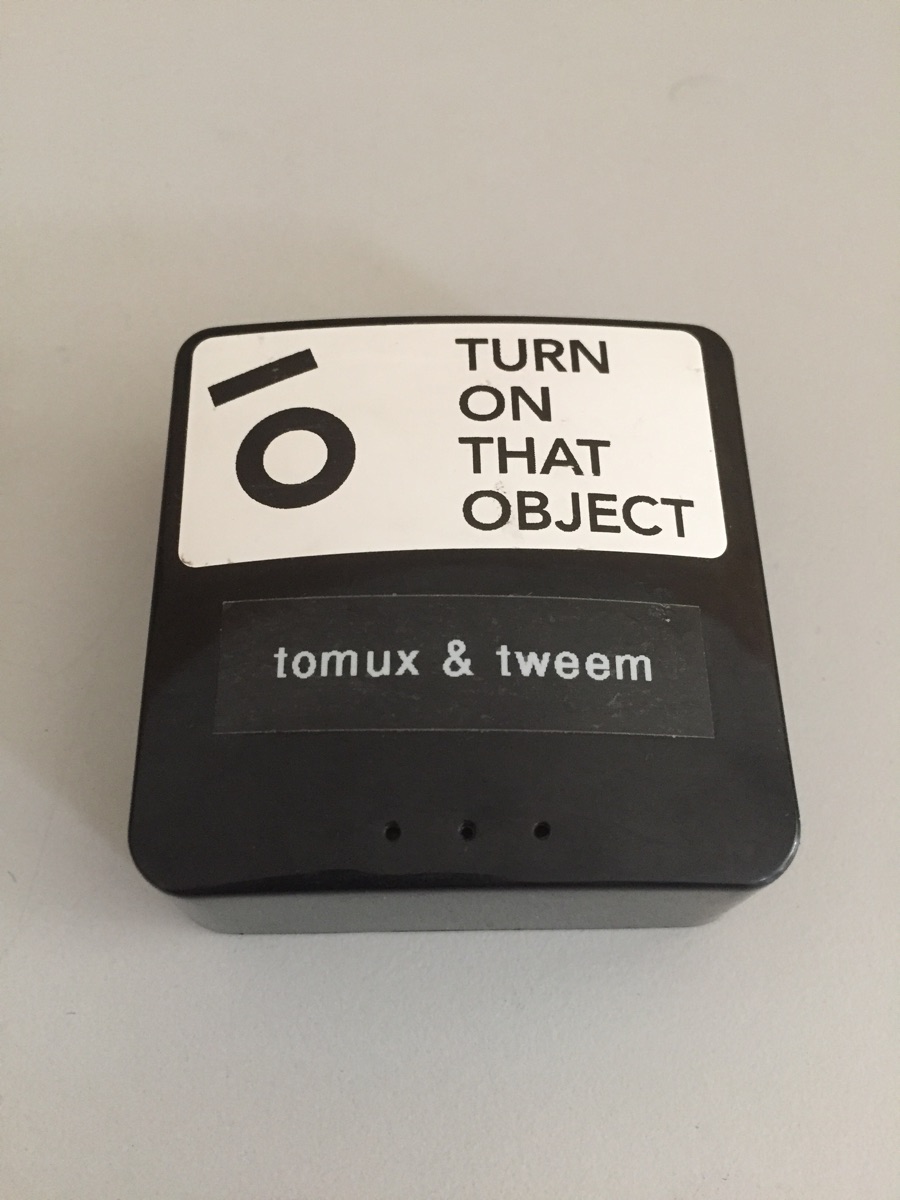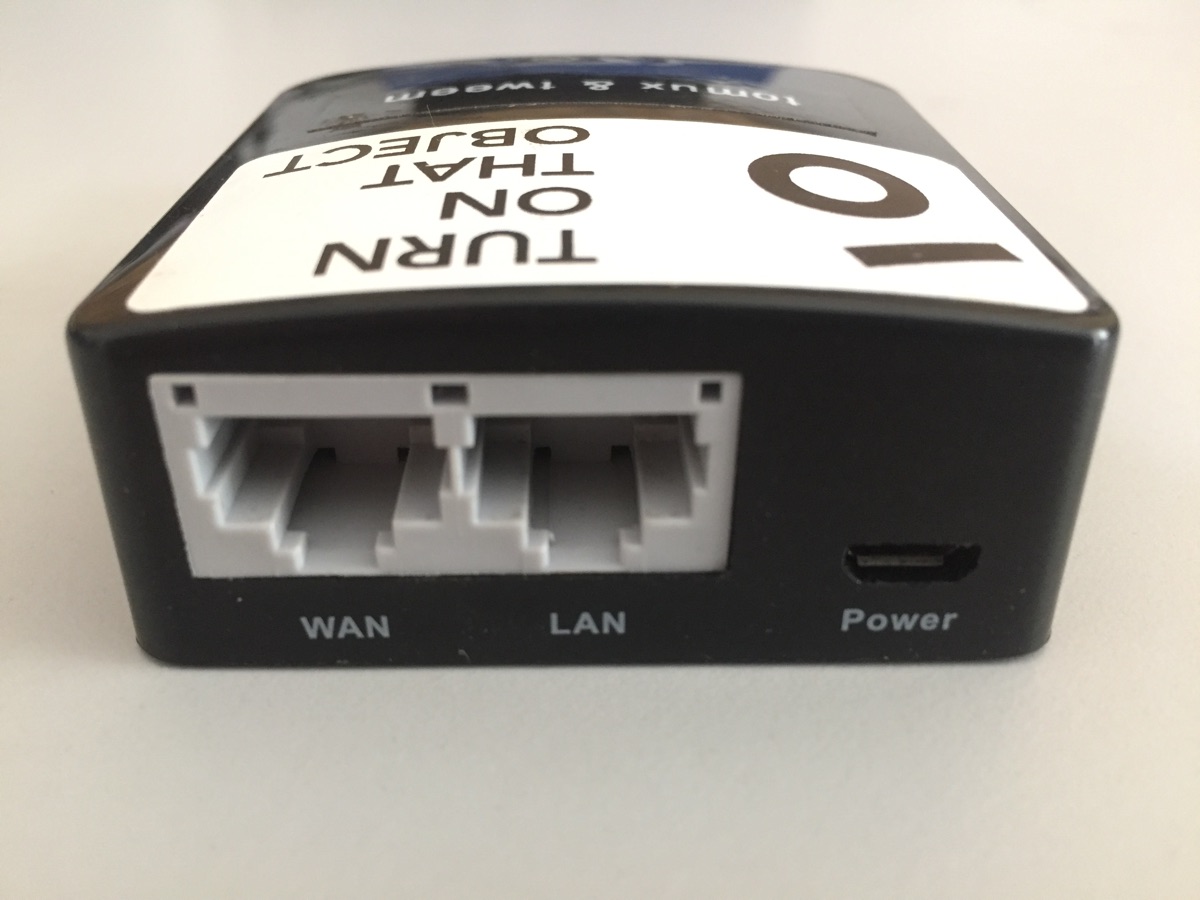Tomux is a TotoObject which can controll OSC devices and software. It translates events that are triggered in the engine to OSC messages. This way it is possible to do all kind of setups. Controll a bunch of projectors via VDMX or send signals to DMX devices using a OSC-to-DMX server like WORK LM-5.
The device is a small router that runs OpenWRT with some custom Lua scripts. On one hand it needs to be connected to the internet via WiFi or via LAN. On the other hand, it connects via the WAN port to your lokal network which connects all your devices, computers, dmx-controllers and the like.
Payload definition
In the payload you define a sequence of OSC commands. Each command is one line in the payload. A command needs to have the following structure:
OSC|<data type>|<ip>|<port>|<path>|<value>
- data type: data type you want to send. e.g.:
float_32 - id: ip address of the target host
- port: port where the target host listens for incoming
OSCmessages - path:
OSCpath - value: actual value you want to send
Example
Send the value
1asfloat_32to the host with the ip address192.168.86.101on port1234under the path/v-boxed-playOSC|float_32|192.168.86.101|1234|/v-boxes-play|1
Setup and Provisioning
- connect the device via lan to a network in order to be able to access it. You also need to figure out the address the device gets in your local network
- open the following url in your browser:
http://<ip-address> - this will open the luci configuration interface. use it to configure your network settings.
- configure how the device gets internet
- configure how to connect to your local network. it can also act as a gateway for your devices in your local network.
- open a command line interface and connect via ssh to the device
- edit the file
/lua/tomux.propertiesand insert the correctkeyandsecretof your TotoObject.

